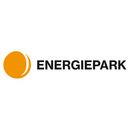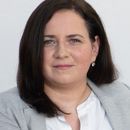
© Artinun - stock.adobe.com
Mastering Energy Efficiency: Shaping Sustainable Spaces
Discover the transformative power of energy efficiency and building optimization! Delve into the essentials of physics and chemistry, explore construction physics and thermal building design, and gain insights into the EU Energy Efficiency Directive's impact. Equip yourself with practical skills to calculate heat balances, conduct ecological building reviews, and develop tailored energy strategies. Join us on this journey to create greener, more sustainable environments for generations to come!
Download the brochure:
What you'll learn
✓ Comprehensive Insight: Focus on energy efficiency and building optimization. Gain awareness of the impact of the EU Energy Efficiency Directive on the energy sector
✓ Application-Oriented: Aquire specialized knowledge and experience it in day-to-day industry applications.
✓ Technology Competence: Acquire skills in heat balance calculation, ecological building reviews, and energy strategy planning. Prepare energy contracts and conduct cost-risk analysis for projects in energy efficiency and building optimization..
✓ Networking: Build connections with experienced professionals and fellow students to expand your professional network.
✓ Flexible: Benefit from modular learning tailored to diverse professional backgrounds.
Didactics: Theoretical content, case studies, reflections and discussions, excursions
Language: Available in English
Venue: TU Wien
Participation Fee: The participation fee is EUR 3,160 (VAT-free, excl. travel and accommodation expenses)
Certificate: Certificate of participation from TU Wien and possibility of crediting to the MSc (CE) Renewable Energy Systems program. The workload of the program equals 10 ECTS.
Requirement for participation: Please register via our online form. A short individual consultation with the program manager is also a necessity for participation.
- To master physics and chemistry foundations in energy efficiency and building optimization.
- To calculate heat balances and conduct comparative ecological building reviews.
- To plan local and regional energy strategies, considering relevant specifications.
- To prepare energy contracts for businesses and communities.
- To implement energy projects independently and creatively.
- To classify model regions and develop, implement, and monitor energy sector measures.
- To understand and apply energy efficiency principles in various contexts.
- To explore emerging technologies such as electric mobility and heat pumps.
2 blocks, 4 days total, full day (classes from 9.00 a.m. – 5.00 p.m.)
- March 12 – 14, 2026 – Thursday – Saturday
- April 12, 2026 – Sunday
This program is tailored for working professionals seeking to enhance their expertise in sustainable energy. We welcome individuals from diverse backgrounds, including engineering, environmental science, business, policy, and beyond. Whether you're a seasoned industry practitioner or a career changer, this flexible program equips you with the knowledge and skills to excel in the rapidly evolving field of renewable energy.
![[Translate to English:] Management Technology](/fileadmin/_processed_/4/a/csm_shutterstock_696275392_29fcf4b970.jpg)
![[Translate to English:] Management Essentials](/fileadmin/_processed_/9/1/csm_shutterstock_599921468_5f86e091c7.jpg)
Faculty
Our lecturers have a scientific background with many years of relevant training experience. They combine theoretical input with a strong focus on practical implementation.
Architect Georg Wolfgang Reinberg, (born in Vienna in 1950), is based in Vienna. He studied Architecture at Vienna Technical University and Syracuse University (NY, USA) and received grants from Schütte and Fulbright.
From 1983 till 1986 he was assistant of Professor Anton Schweighofer at the Vienna Technical University. Since 1980 he is working as an independent Architect and runs his own “Ziviltechnikerbüro” since 1985. From 1983 to1990 he was member of “Arge Architekten Reinberg, Treberspurg, Raith”. He is managing his office together with his wife Martha Enriquez-Reinberg, lic. Arch. 2006 the name of his firm was changed into "Architekturbüro Reinberg ZT GmbH". This office which recently has 8 stuff members, is working in design as well as detailed planning and construction management. Architect Reinberg has realized more than 100 ecologically oriented projects.
In connection with those projects Reinberg has engaged in various research activities.
He won numerous competitions, honours and prizes.
He has taught at Solarbauschule Vorarlberg (1994 – 95). He is lecturing at the Vienna Technical University (since 1995); is visiting Professor at the Danube University in Krems (Solar Architecture, since 1997) and teaches at the University of Applied Sciences in Vienna (FH Campus, since 2013). He is also teaching and giving lectures internationally.
Georg W. Reinberg has published - among others - the following books: “Ecology and Architecture: Architecture by Georg W. Reinberg”, 1998; “Georg W. Reinberg: Solar Architecture”, 2005; “Ecological Architecture-Design, Planning, Realization”, 2008.
Marcus Hummel joined the EEG in 2009. He holds a degree in process engineering (Energy and Environmental Engineering) at the TU Wien. In his diploma thesis he developed a "Model for scenario analyses about the technical possibilities of renewable energy systems" working as a research assistant at the Institute of Industrial Ecology in St.Pölten. One year he studied at the University of Granada in Spain.
His research interests include technical and environmental as well as economical and political aspects of energy systems. Focus lies on the understanding of possible future developments of energy systems using techno-economic modelling approaches. The aim is to help develop sound political measures for the transition to sustainable energy systems in a low-carbon society.
Special working focus lies on industrial energy systems as well as the space heating and hot water in buildings market. Due to the existing overlapping concerning buildings as well as processes his work also covers the service sector. His research topics cover both energy efficiency improvement and renewable energy integration.
Marcus Hummel works on national and international research projects and takes care of project acquisition and coordination.
Since 2010 he takes care of the "Energiegespräche" (Energy Talks) at the Vienna Museum of Technology, a quarterly event for discussing recent energy related topics in public.
Marcus Hummel and Raphael Bointner together lead the Student Chapter of the Austrian Association for Energy Economics (AAEE). The aim is to connect PhD-Students in the field of Energy Economics on the national as well as international level and to foster scientific discussion in the field. Highlight is the organisation of an international PhD-Day once a year at EEG.
The above faculty represent a selection of our lecturers.
The First Step Toward Your Master’s Degree
This compact program is part of the MSc Renewable Energy Systems and can be credited toward the master’s program at a later stage.

